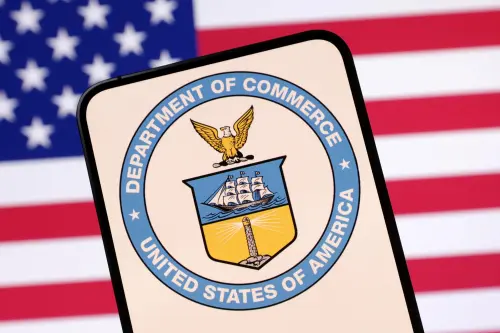Introduction
Recent developments have seen the U.S. suspend export licenses for suppliers of nuclear equipment intended for Chinese power plants. This decision marks a significant escalation in the ongoing trade conflict between the two nations.Context
According to sources familiar with the situation, the U.S. Department of Commerce has communicated these suspensions to various companies, targeting essential parts and equipment used in nuclear power infrastructure. This move reflects a broader trend in the trade war, which has shifted from negotiating tariffs to disrupting each other's supply chains. A notable uncertainty looms over whether discussions between U.S. President Donald Trump and Chinese President Xi Jinping would have any impact on these suspensions.Developments
In recent negotiations, the U.S. and China had agreed to retract various tariffs for a period of 90 days, starting May 12. However, the agreement soon deteriorated, with each side accusing the other of failing to uphold terms related to rare earth elements and export control measures. Trump announced plans for further meetings between U.S. and Chinese officials on June 9.Despite a request for comment on the nuclear equipment suspensions, the U.S. Department of Commerce did confirm that it was reviewing exports deemed strategically significant to China. During this review, existing export licenses have been suspended, or additional licensing requirements imposed.
Key players among U.S. nuclear equipment suppliers include Westinghouse and Emerson, both of which have not responded to requests for comments. The financial implications of these suspensions are considerable, impacting business worth hundreds of millions of dollars.
A spokesperson from the Chinese Embassy indicated that President Xi emphasized the importance of adhering to the May 12 agreement during his conversation with Trump. The spokesperson stated that China has been "earnestly" adhering to the commitments made and that the U.S. should recognize the progress achieved, while also urging the removal of negative measures against China.
Chinese restrictions on critical metals are further complicating global supply chains, particularly affecting the U.S.'s major automotive manufacturers. In contrast, China has issued temporary export licenses for rare earth materials to U.S. automakers.
While it remains unclear if the recent restrictions were directly influenced by the trade war, sources report that a series of new licensing requirements has emerged in the last fortnight. These include licenses for hydraulic fluids and restrictions affecting GE Aerospace regarding jet engines for China's COMAC aircraft.
Moreover, the U.S. now mandates licenses for shipping ethane to China. Houston-based Enterprise Product Partners has reported that its requests for expedited shipments of ethane totaling approximately 2.2 million barrels have not been granted. They noted that a newly required license for butane was later rescinded, yet Dallas-based Energy Transfer received notification of the new ethane licensing requirement and intends to apply for emergency authorization.
Additionally, companies providing electronic design automation software, such as Cadence Design Systems, have also been impacted by these new restrictions.
